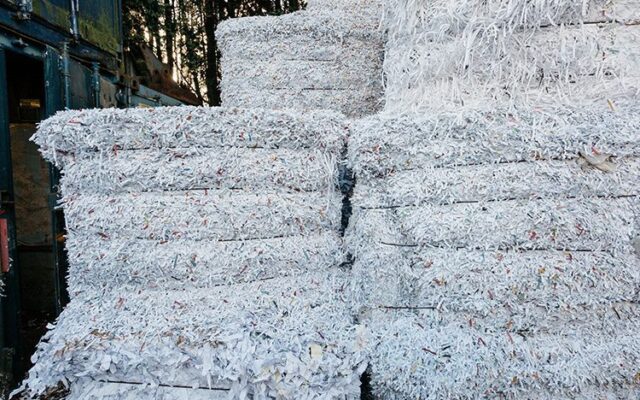
How to Securely Destroy Confidential Waste
Any business that records confidential information from their clients has a legal obligation to handle and dispose of it with full confidentiality. Sensitive details can include names, financial information, DOBs, addresses, patient records, and payroll information. Failure to comply or take due care in handling confidential waste could land you with a hefty fine and damage your reputation.
So, how can you ensure responsible disposal of confidential waste? Brown Recycling are here to explore the topic in further detail.
The importance of data protection
The Data Protection Act 1998 should be familiar to employers and business owners. This law outlines the right of individuals, along with the procedures for handling and destroying confidential data, records and waste.
Recently, GDPR has also been on the minds of everyone. GDPR stands for General Data Protection Regulation, and is an EU law designed to give individuals more say over where their personal information goes. Under recent new rules, companies must ensure they are meeting all GDPR requirements – or risk a large fine.
What is confidential waste?
Simply put, confidential waste is anything that reveals personal information about an individual, including any details that could identify the individual. This can include any details contained on paper, CDs or computers. Types of confidential waste include:
Financial: Anything that contains bank details or financial information, such as payslips or invoices. This may also include quotes.
Emails or letters: Any correspondence that contains a client’s name, number, address, or similar, is classed as confidential.
Employment records, contracts or application forms: When we fill out a form, or sign up for something, we’re often expected to fill out key details about ourselves. Any of these records should be treated as sensitive, including those pertaining to your employees, third party contacts, and clients.
Medical information/records: Information regarding a person’s private details and medical history.
Signatures: Watch out for anything that contains a signature.
Operational documents: Anything about the running of your business, such as marketing strategies or customer/third party details.How can confidential waste be destroyed?
How can confidential waste be destroyed?
Rules may differ depending on the level of confidentiality of the particular confidential waste that needs to be disposed of e.g. what shredder should be used, whether incineration of the scraps is necessary.
Paper should be shredded as a minimum, but certain documents may require a higher level of destruction such as a cross-cut shredder or incineration, while CDs should be shredded, they will be subject to a different level of shredding than paper. Computers, hard drives or other electrical storage of data should be wiped/formatted with specialist equipment, shredded with an industrial grade shredder or incinerated.
Keeping the confidential waste securely separated is advised very important – this way, it won’t be confused with regular waste.
By far, the most surefire way of ensuring your confidential waste is dealt with legally, safely and efficiency, is by using a professional such as Brown Recycling. We offer confidential and secure destruction of any confidential waste by using specialist methods – giving you total peace of mind.
Need to safely dispose of confidential paperwork? Here at Brown Recycling, we can offer confidential shredding and disposal of your paperwork and documents, ensuring any sensitive information remains a secret. Contact us today for more information about our services – we serve offices and businesses across Staffordshire and Cheshire.
This website uses cookies to enhance your browsing experience and deliver personalised ads. By clicking “Accept All Cookies”, you agree to the storing of cookies on your device to enhance site navigation, analyse site usage, and assist in our marketing efforts.




